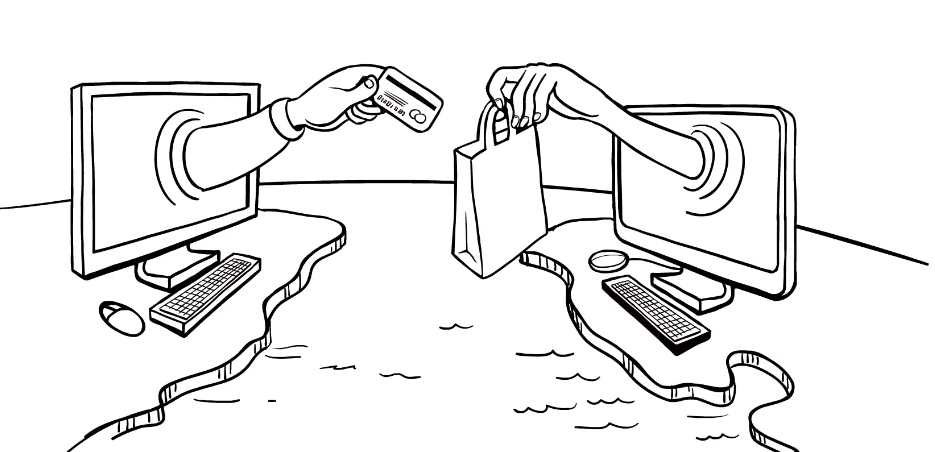Importance of Data Utilization in Organizations
Data utilization is crucial for organizations in today’s digital age. With the vast amount of data available, organizations can use it to gain valuable insights into customer behaviour, market trends, and operational efficiency. By analyzing and interpreting data, organizations can make informed decisions that can lead to increased revenue, improved customer satisfaction, and reduced costs. One of the key benefits of data utilization is the ability to gain a deeper understanding of customer behaviour.
Benefits of Utilizing Organizational Data
The utilization of organizational data has numerous benefits for businesses. One of the most significant advantages is the ability to gain valuable insights into customer behaviour. By analyzing data on customer preferences, buying habits, and interactions with the organization, businesses can tailor their products and services to better meet the needs of their customers. In addition, data utilization can also help businesses identify market trends and stay ahead of the competition.
Enhancing Decision-Making Processes
Another benefit of utilizing organizational data is the ability to enhance decision-making processes. With access to accurate and timely data, businesses can make informed decisions about product development, marketing strategies, and operational efficiencies. This can lead to increased productivity, reduced costs, and improved overall performance.
Improving Operational Efficiency
Improving operational efficiency is crucial for businesses to remain competitive and profitable. By analyzing data on various operational processes, businesses can identify areas for improvement and implement changes to streamline workflows and reduce costs. This can result in increased efficiency, faster turnaround times, and improved customer satisfaction. Additionally, data analysis can help businesses optimize inventory management, reduce waste, and improve supply chain management.
Role of Privacy in Data Utilization

Privacy is a crucial aspect of data utilization. Businesses must ensure that they are collecting and using data responsibly and ethically and that they are complying with relevant privacy laws and regulations. This includes obtaining consent from individuals before collecting their data, and ensuring that data is stored securely and used only for its intended purpose. Additionally, businesses must be transparent about their data collection and usage practices, and provide individuals with the ability to access, modify, or delete their data.
Privacy Challenges in Utilizing Organizational Data
Organizations face several privacy challenges when utilizing their data. One of the main challenges is ensuring that the data is accurate and up to date. This requires implementing proper data governance and management practices, such as regularly reviewing and updating data, and ensuring that only authorized personnel have access to it. Another challenge is protecting sensitive data, such as personal information, financial data, and confidential business information. Organizations must implement strong security measures, such as encryption, access controls, and monitoring to prevent unauthorized access and data breaches.
Data Breaches and Cybersecurity

Data breaches and cybersecurity are major concerns for organizations of all sizes. A data breach can occur when sensitive information is accessed, stolen, or leaked by unauthorized individuals or entities. This can result in significant financial losses, damage to the organization’s reputation, and legal consequences. To prevent data breaches and improve cybersecurity, organizations must implement robust security measures. This includes regularly updating software and systems, implementing firewalls and antivirus software, and providing employee training on cybersecurity best practices.
Lack of Data Anonymization
Data anonymization is the process of removing personal information from data sets so that the data cannot be linked back to specific individuals. Failure to anonymize data can lead to privacy violations and breaches of confidentiality. This is particularly important for sensitive data such as medical records, financial information, and personal identifying information. Organizations must ensure that they have proper protocols in place to anonymize data before it is shared or used for research purposes.
Surveillance and User Monitoring
Surveillance and user monitoring refer to the practice of monitoring individuals’ activities, either in physical spaces or online. This can be done for a variety of reasons, including security, crime prevention, and employee monitoring. However, it is important to balance the need for surveillance with individuals’ right to privacy. Organizations should have clear policies in place regarding surveillance and user monitoring, outlining the purpose and scope of the monitoring, as well as the measures in place to protect individuals’ privacy.
Regulatory Compliance
Regulatory compliance refers to the adherence to laws, regulations, and standards set by governing bodies. This can include financial regulations, data privacy laws, and industry-specific regulations. Non-compliance can result in legal and financial consequences, as well as damage to a company’s reputation. It is important for organizations to understand and comply with relevant regulations, and to have processes in place to monitor and ensure ongoing compliance. This may involve regular audits, training programs, and the use of compliance management software.
Consequences of Privacy Issues
Privacy issues can have serious consequences for individuals and organizations. For individuals, privacy breaches can result in identity theft, financial loss, and damage to personal reputation. For organizations, privacy breaches can result in legal and financial penalties, loss of customer trust, and damage to reputation. In addition to legal and financial consequences, privacy breaches can also have significant social and ethical implications. They can lead to the misuse of personal information, discrimination, and other forms of harm.
Damaged Reputation and Trust
Privacy breaches can have a significant impact on an organization’s reputation and trustworthiness. When an organization fails to protect its customers’ personal information, it can lead to negative publicity and a loss of trust among its customers. This can result in a decline in sales and revenue, as well as difficulty attracting new customers. In addition, privacy breaches can also lead to legal and financial penalties, which can further damage an organization’s reputation.
Legal and Financial Ramifications
Privacy breaches can have serious legal and financial ramifications for organizations. Depending on the nature of the breach and the laws in the jurisdiction where the organization operates, the organization may be subject to fines, lawsuits, or even criminal charges. For example, in the European Union, organizations can be fined up to 4% of their global annual revenue for violating the General Data Protection Regulation (GDPR). In addition, organizations may also face legal action from affected individuals seeking compensation for damages resulting from the breach.
Employee Dissatisfaction and Retention

Employee dissatisfaction can have a significant impact on an organization’s retention rates. When employees are unhappy with their job or work environment, they may be more likely to leave the organization in search of better opportunities. This can result in increased turnover rates and the associated costs of recruiting and training new employees. In addition, employee dissatisfaction can also lead to decreased productivity and lower morale among remaining employees. This can have a ripple effect on the organization’s overall performance and bottom line.
Privacy-Enhancing Strategies for Data Utilization
There are several privacy-enhancing strategies that organizations can implement to ensure the responsible and ethical use of data. One approach is to implement a data minimization policy, which involves collecting and storing only the minimum amount of data necessary for a specific purpose. This can help reduce the risk of data breaches and limit the potential for misuse of sensitive information. Another strategy is to implement strong data security measures, such as encryption and access controls, to protect data from unauthorized access and theft.
Privacy by Design
Privacy by Design is a framework for designing and developing products, services, and systems that prioritize privacy and data protection. It involves incorporating privacy considerations into every stage of the design process, from concept development to implementation and beyond. This approach aims to proactively identify and address privacy risks before they become problems, rather than reacting to them after the fact. By prioritizing privacy from the outset, Privacy by Design can help organizations build trust with their customers and stakeholders, while also complying with legal and regulatory requirements.
Transparent Data Practices
Transparent data practices refer to the principle of making information about the collection, use, and sharing of personal data easily accessible and understandable to individuals. This can include providing clear and concise privacy policies, using plain language to describe data practices, and offering individuals meaningful choices about how their data is used. Transparent data practices are important for building trust with customers and stakeholders, as well as for complying with legal and regulatory requirements. They can also help organizations demonstrate accountability and responsibility in their handling of personal data.
User Consent and Control
When it comes to data privacy, user consent and control are crucial. Individuals have the right to know what data is being collected about them, why it is being collected, and how it will be used. They also have the right to control their data, including the ability to access, correct, delete, or restrict its use. Organizations should obtain clear and explicit consent from individuals before collecting or using their data.
Privacy Impact Assessments
Privacy Impact Assessments (PIAs) are an important tool for organizations to assess and mitigate privacy risks associated with their data processing activities. PIAs help organizations identify potential privacy risks, evaluate the necessity and proportionality of data processing, and implement appropriate safeguards to protect personal data. By conducting PIAs, organizations can demonstrate their commitment to data privacy and ensure compliance with privacy laws and regulations.
Collaborative Approaches to Privacy
Collaborative approaches to privacy involve working together with stakeholders to address privacy concerns and develop effective privacy solutions. This can include engaging with customers, employees, regulators, and other interested parties to understand their privacy needs and concerns, and to develop policies and procedures that address those concerns. Collaborative approaches can also involve working with other organizations or industry groups to develop privacy standards and best practices that can be adopted across the industry.
FAQs
What is The Relationship Between Privacy And Data Utilization?

Privacy and data utilization are closely related because data utilization involves the collection, processing, and analysis of personal information. Privacy concerns arise when individuals feel that their personal information is being used in ways that they did not consent to or that are not transparent. Therefore, organizations must balance their need to utilize data with the need to protect individuals’ privacy rights. This requires implementing privacy policies and procedures that provide transparency, control, and security over personal information.
How Can Organizations Address The Privacy Challenges Associated With Data Utilization?
There are several ways that organizations can address privacy challenges associated with data utilization:
1. Develop clear and transparent privacy policies: Organizations should have clear and concise privacy policies that explain how personal information is collected, used, and shared. These policies should be easily accessible to individuals and written in plain language.
2. Obtain consent: Organizations should obtain consent from individuals before collecting, using, or sharing their personal information.
What Are The Potential Consequences Of Privacy Issues In Utilizing Organizational Data?
Privacy issues in utilizing organizational data can have serious consequences, including:
1. Legal consequences: Organizations that fail to comply with privacy laws and regulations can face legal action, fines, and damage to their reputation.
2. Loss of trust: If individuals feel that their personal information is not being handled appropriately, they may lose trust in the organization and be less likely to do business with them in the future.
3. Data breaches: If personal information is not properly secured, it can be vulnerable to hacking.
How Can Organizations Enhance Privacy While Utilizing Data Effectively?
There are several ways that organizations can enhance privacy while still utilizing data effectively:
1. Implement strong data security measures: Organizations should implement strong data security measures, such as encryption and firewalls, to protect personal information from unauthorized access.
2. Obtain explicit consent: Organizations should obtain explicit consent from individuals before collecting and using their personal information. This can be done through clear and concise privacy policies and opt-in mechanisms.
What Are The Future Trends And Predictions Regarding Privacy In Data Utilization?
There are several future trends and predictions regarding privacy in data utilization. One trend is the increasing use of artificial intelligence and machine learning algorithms to analyze and process large amounts of personal data. This raises concerns about the potential for bias and discrimination in decision-making based on this data. Another trend is the growing importance of privacy regulations, such as the General Data Protection Regulation (GDPR) in the European Union and the California Consumer Privacy Act (CCPA) in the United States.
Conclusion
Overall, organizations need to prioritize privacy in their data utilization practices. This includes being transparent about how personal data is collected, processed, and used, as well as implementing measures to prevent bias and discrimination in decision-making based on this data. Additionally, complying with privacy regulations is crucial for maintaining consumer trust and avoiding potential legal consequences.
